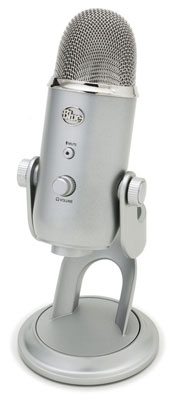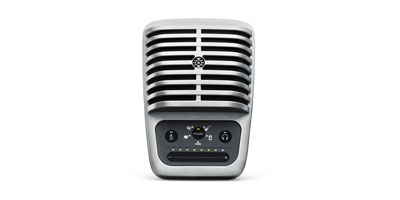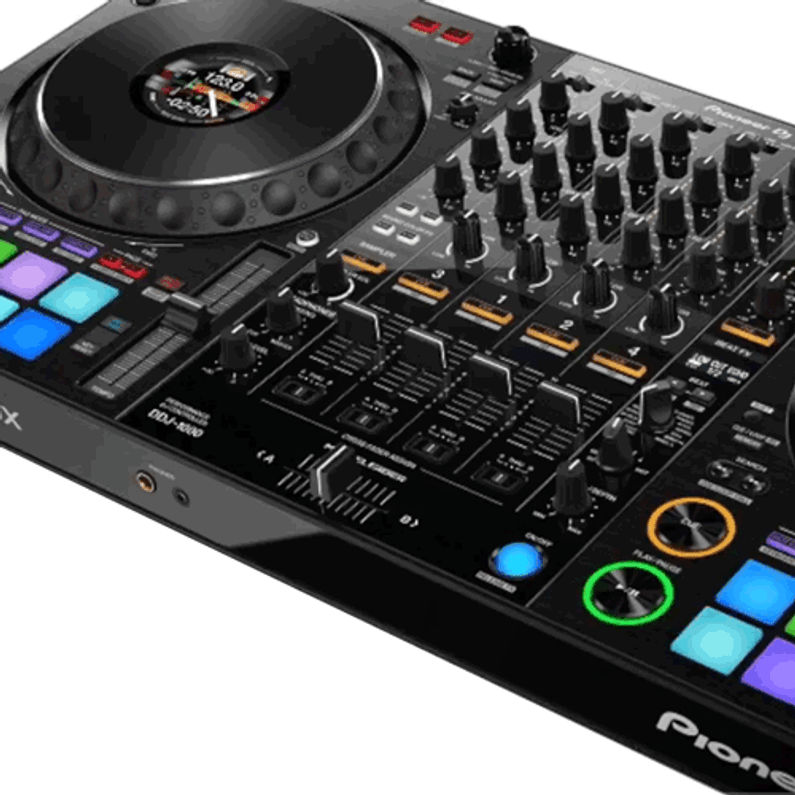Best Podcasting USB Microphones- Shure MV51 vs Blue Yeti
With the digital age making media more and more accessible, bloggers are constantly looking for new ways to reach their audience. Video blogging has seen an explosion in recent years and consumers are beginning to demand a higher quality experience or they'll simply watch someone else's video losing your coveted views and possibly earning a thumbs down rating. We've put two of the most popular microphones up against each other to see just how they fair!
We wanted to keep this demo as simple as possible and run through the steps that someone might encounter in their home to record an audio blog. We've used- a MacBook Pro, Ableton Live audio software- which is similar in many ways to any free software you can find on the internet- a set of basic recording headphones, the microphones in question and that's it! You could literally do this in your bed if you wanted to.
The first thing you'll notice about the Yeti is it's sturdy construction- this thing is built to last! It's built-in stand makes setup super easy and we've found the extra weight it wields might seem clumsy at first, but keeps it planted firmly on any desktop surface. Next we fired up our recording software and plugged in the Yeti with the included USB cable. The Yeti immediately showed up in Ableton's available input devices drop down menu, we selected it, set levels via the volume knob conveniently located on the front and boom- off and running. The headphone port is located under the mic, which works nicely with it's built in stand design and you'll find the headphone cable hangs naturally without any tangling issues. The Yeti it's self doesn't have any built-in signal processing options, but we found the tone to be light and "airy" as some audio pros would describe it. The Yeti runs $149.00 and overall at the price, it's a great deal!
The MV51 has a distinct future-retro look to it that found very appealing out of the box. Much like the Yeti, it was a heft to it and is built with an eye to quality. The "kick-stand" like stand that is built into the back is a little clunky to use at first, but it doesn't take long to get the hang of it. The compact form factor of the MV51 makes it a much better option if you plan on traveling and recording. The stand folds in and at that point the footprint is about the size of an adults palm (unless you have REALLY big hands) making it a snap to toss in a backpack, purse, fanny pack, etc on the go. Unlike the Yeti, the MV51 comes equipped with lightning cable compatibility, which opens up the possibility of iOS mobile recording for iPhones, iPads, etc. We used the same recording setup as the Yeti and it took a little extra time for Ableton to detect the MV51, in the end we had to power the mic on and off again and it worked just fine. The MV51 has a slide touch input volume control strip on the front, which we found to be a bit less intuitive than a knob like the Yeti. The MV51 has a very strong output, so getting enough signal out of the mic isn't a problem like we've found with some other USB microphones. The built-in signal processing and lighting adapter makes the Shure a much more flexible option, though it might take a little bit of time to get used to the more advanced interface. The tone of the MV51 was warm and beefy right out of the box on the podcaster setting and I found it very pleasing to the ear, especially if you're listing on headphones. The MV51 sells for $199.00- $50 more than the Yeti- but if you're in the market for a mic that sounds more like a pro studio recording, with DSP (digital signal processing) built-in than this is the mic for you!
Enjoy!
Recent Posts
-
Review: DJ Kue on the Pioneer DDJ-1000 Professional Controller for Rekordbox
Our good friend and long time customer DJ Kue did an amazing review of the DDJ-1000 controller a …Jun 13th 2018 -
World of Stereo Now Carrying Jesse Dean Designs Portablist and Turntable Accessories!
Portablism has reached a new pinnacle with new products being released all the time and scratch DJ's …Mar 28th 2018 -
Skratchpad Open DJ session Comes To World of Stereo Sacramento
World of Sacramento recently hosted our first Skratchpad, Sunday March 18th and it was a huge succes …Mar 22nd 2018



